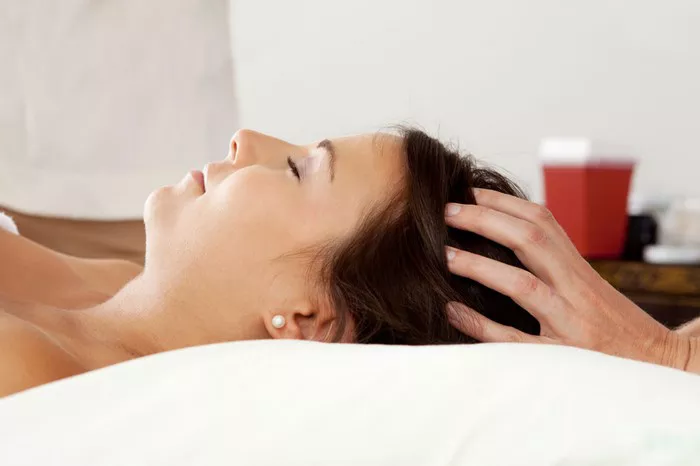Many people consider their nighttime routine, often including skin care and even a carefully selected sleep position. However, one aspect that often gets overlooked is how we manage our hair while we sleep. Whether it’s a loose bun, a braid, or leaving it down, the way you position your hair at night can significantly impact its health and appearance. This article explores the question: Is it better to sleep with hair up? We will dive into the benefits and drawbacks of sleeping with your hair secured, as well as offer tips for maintaining healthy hair overnight.
Understanding the Impact of Sleep Position on Hair
The Science of Hair Health
Before we delve into the specifics of sleeping with hair up or down, it’s essential to understand how hair functions and what affects its health:
Hair Structure: Each strand of hair consists of a protective outer layer called the cuticle. Keeping the cuticle smooth helps prevent breakage and split ends.
Natural Oils: Your scalp produces sebum, which naturally moisturizes your hair. Disrupting this balance can lead to dryness or greasiness.
Factors Affecting Hair While Sleeping
Friction: Rubbing against your pillow can create friction, leading to tangles and breakage.
Tension: Pulling hair into a tight hairstyle can cause stress on the hair shaft, leading to potential damage.
Humidity: Nighttime humidity can affect your hair’s texture and moisture levels, impacting how it looks in the morning.
See Also: Does Your Hair Get Greasy If You Wash It Every Day?
Benefits of Sleeping with Hair Up
1. Reduces Frizz and Tangles
Securing your hair in a loose bun or braid can help minimize friction against your pillow, reducing frizz and tangles. This can be especially beneficial for individuals with curly or textured hair, which is more prone to becoming tangled overnight.
2. Protects Hair from Breakage
When hair is left down, it is more susceptible to breakage caused by friction. Sleeping with hair up can help mitigate this risk, particularly for those with long hair. A gentle tie can keep hair in place, preventing it from rubbing against the pillow and breaking.
3. Maintains Style
For those who style their hair before bed, sleeping with it secured can help maintain that style. Whether it’s curls, waves, or straightened hair, securing it can help prevent it from falling flat or becoming messy overnight.
4. Promotes Scalp Health
Keeping hair up allows for better airflow to the scalp, which can be beneficial for those prone to scalp issues. It can also help distribute natural oils more evenly through your hair.
Drawbacks of Sleeping with Hair Up
1. Risk of Tension and Damage
If hair is pulled too tightly, it can create tension at the roots, leading to hair loss or damage over time. It’s essential to ensure that any hairstyle used to secure hair is loose enough to prevent this tension.
2. Hair Accessories May Cause Breakage
Using rubber bands or hair ties that are too tight can cause breakage. It’s crucial to choose hair accessories that are gentle on your hair, such as scrunchies or fabric-covered elastics, to avoid this issue.
3. Not Suitable for All Hair Types
While many people benefit from sleeping with their hair up, this may not be suitable for everyone. For instance, those with very short hair may find it unnecessary, while individuals with very fine hair may experience more tangling if their hair is secured tightly.
Tips for Sleeping with Hair Up
If you decide to sleep with your hair up, here are some tips to maximize benefits while minimizing potential damage:
1. Choose the Right Hairstyle
Loose Bun or Top Knot: A loose bun on the top of your head can prevent tangling while keeping hair secure.
Braids: Loose braids can help keep hair together without causing tension or breakage.
Pineapple Method: For those with curly hair, the “pineapple” method involves gathering hair at the top of your head to protect curls.
2. Use Gentle Hair Accessories
Opt for hair accessories that are designed to be gentle on your hair. Look for:
Scrunchies: These are softer and less likely to cause breakage compared to regular hair ties.
Fabric Hair Ties: Choose those that won’t snag or pull on your hair.
3. Maintain a Silk or Satin Pillowcase
Using a silk or satin pillowcase can help reduce friction while sleeping. These materials allow your hair to glide smoothly, decreasing the risk of tangles and frizz.
4. Keep Your Hair Clean and Moisturized
A healthy scalp and hair will benefit from good hygiene and moisture. Make sure to wash your hair regularly and use conditioner to keep it hydrated. Consider a leave-in conditioner or hair oil before bed to keep your hair nourished overnight.
5. Alternate Between Up and Down
For optimal hair health, consider alternating between sleeping with your hair up and down. This allows your scalp to breathe while also protecting your hair from potential damage.
Conclusion: Finding Your Perfect Nighttime Hair Routine
In conclusion, whether it is better to sleep with hair up depends on individual hair types and preferences. Sleeping with hair secured can help reduce frizz, tangles, and breakage while promoting overall hair health. However, it’s essential to choose the right hairstyles and accessories to prevent damage.
Finding a balance between protecting your hair and allowing it to move freely during sleep is key. Experiment with different methods and discover what works best for your hair type. Ultimately, prioritizing hair health during sleep can lead to more manageable and beautiful hair in the morning.
You Might Be Interested In
- Is Hair Milk the Same as Leave-In Conditioner? Let You Know
- Castor Oil: A Versatile Solution for Skin and Hair Care
- The Truth About Hair Bleach: Can It Cause Hair Loss?


